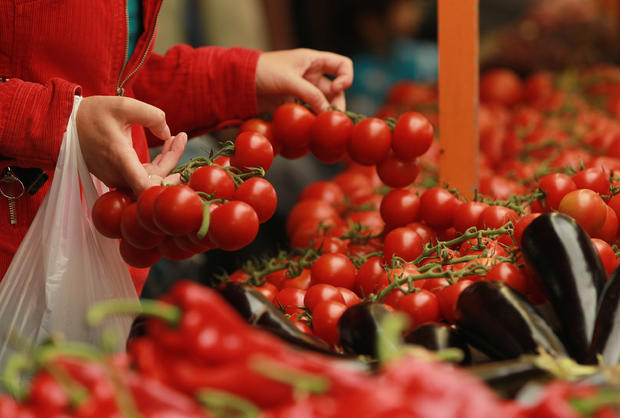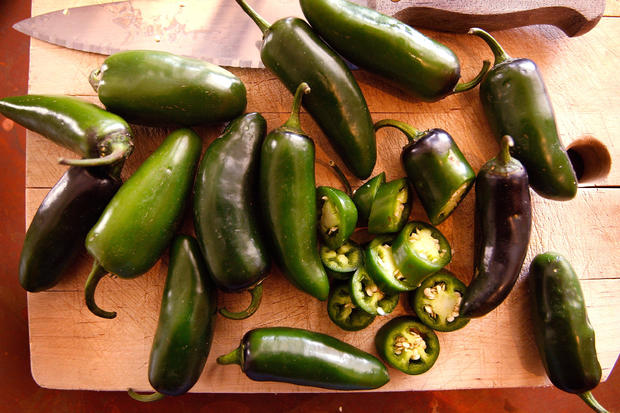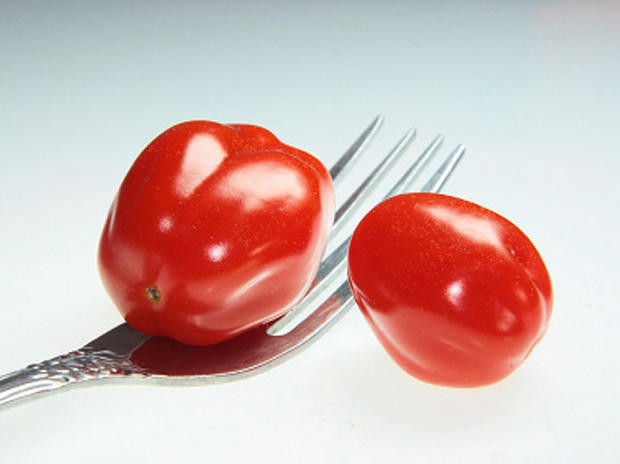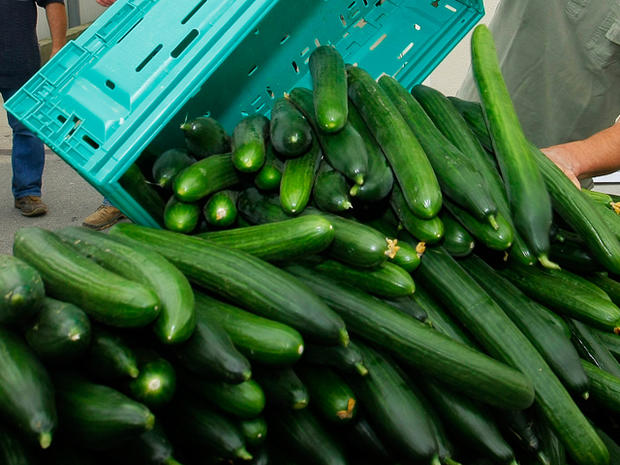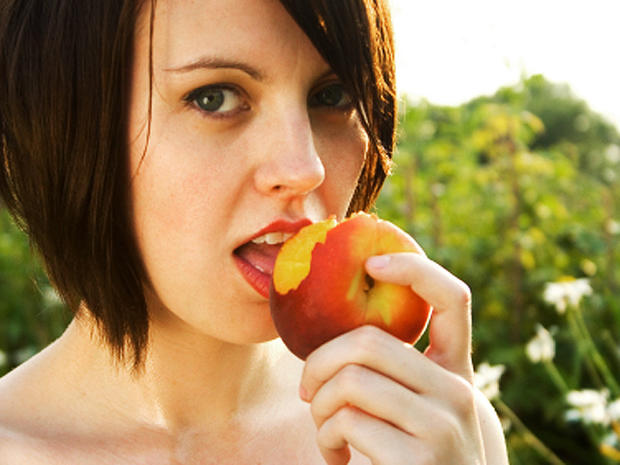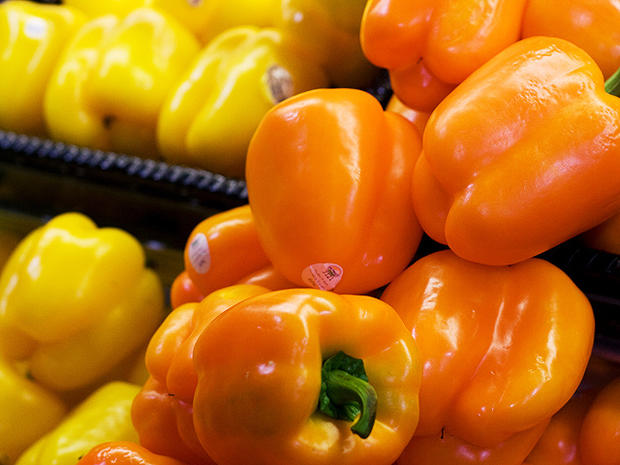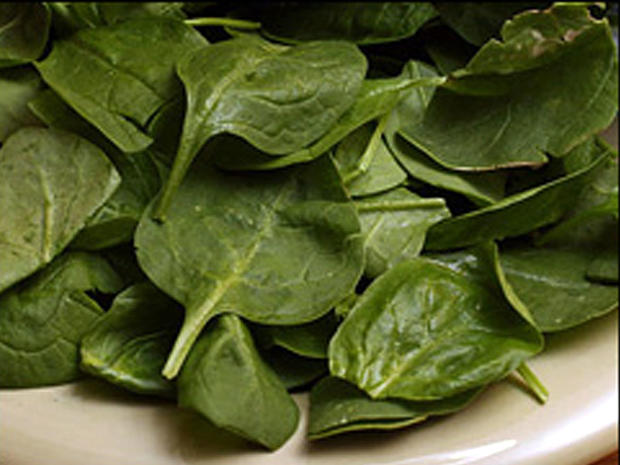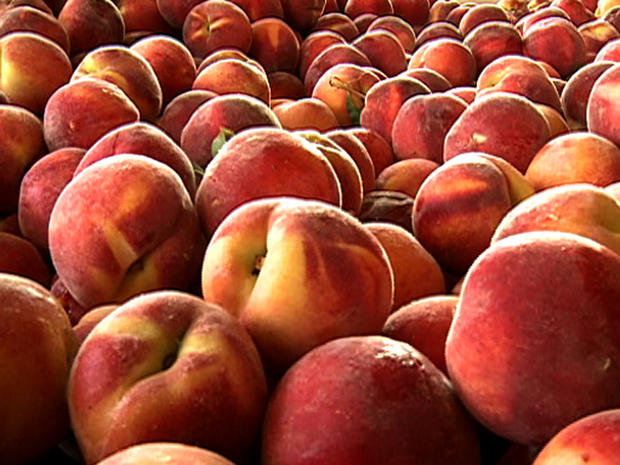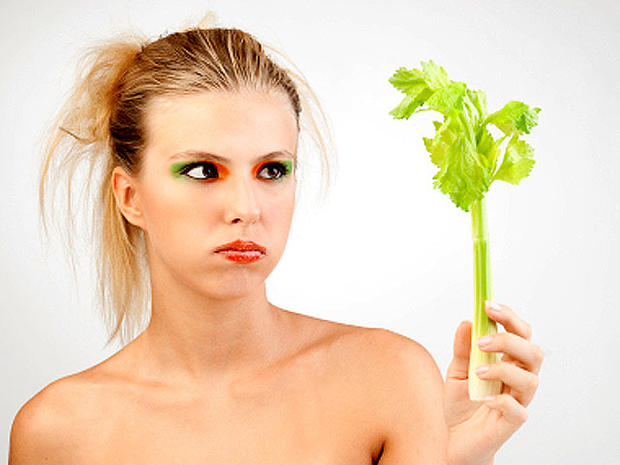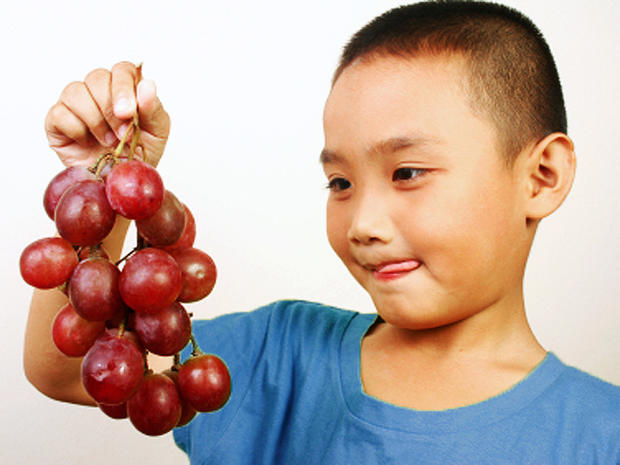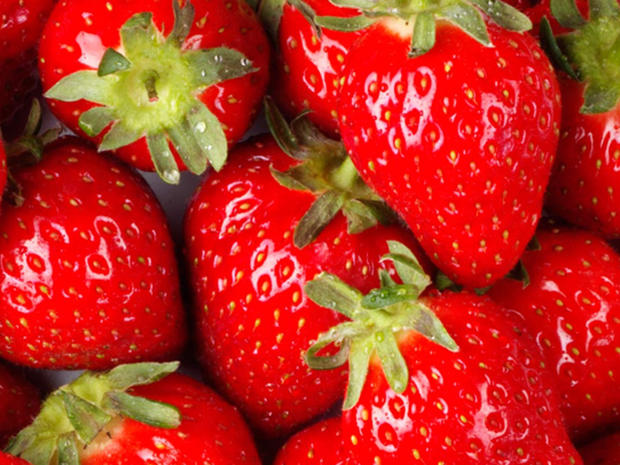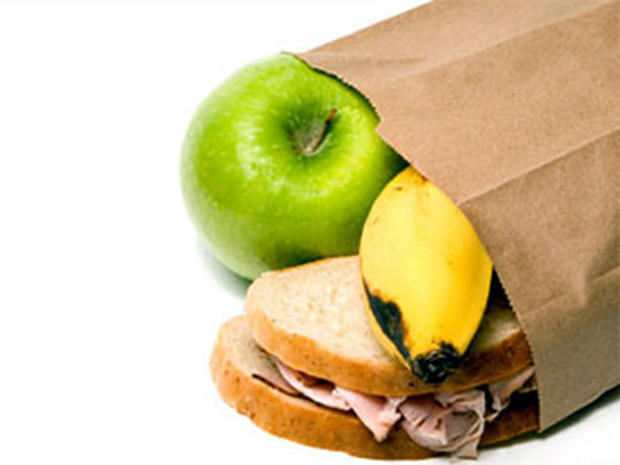Pesticides on produce: 2013's "Dirty Dozen"
Researchers looked at 48 popular produce items and reviewed 28,000 samples tested by the USDA and FDA to compile its list. According to the group, many pesticides pose health risks to people and have been linked to brain and nervous system toxicity, cancer, hormone disruption, and irritation of the skin, eyes and lungs. The EWG recommends people eat organic when possible.
Which conventionally-sold fruits and vegetables may you want to consider buying organic to reduce pesticide exposure? Keep clicking to see what the EWG found.
12. Hot peppers
The group said its analysis of government tests found 67 percent of produce tested contained detectable pesticide residues -- even after they had been washed or peeled.
11. Cherry tomatoes
One single sample of cherry tomatoes tested positive for 13 different types of pesticides, the EWG's report found.
10. Potatoes
The analysis showed the average potato had a much higher total weight of pesticides compared to any other food crop tested.
9. Cucumbers
The EWG noted that it does not recommend skipping all the conventional fruits and vegetables featured on its list, pointing out the organization recommends these foods over less-healthy snacks or processed products. The group, however, recommends buying organic when possible.
8. Imported nectarines
7. Sweet bell peppers
6. Spinach
5. Peaches
"Pesticides are toxic by design and created expressly to kill living organisms -- insects, plants and fungi that are considered 'pests,'" the EWG emphasized in its report.
In October 2012, the American Academy of Pediatrics released a report saying parents who want to reduce their child's pesticide exposure may seek out organic fruits and vegetables, but added science hasn't proven that eating pesticide-free foods makes people any healthier.
"We just can't say for certain that organics is better without long-term controlled studies," the academy said.
4. Celery
For the 2013 list, celery was the produce item that had the fourth-most contamination from pesticides, but was the most contaminated of the vegetables. One single sample of celery tested positive for 13 different types of pesticides.
3. Grapes
Last year, grapes ranked seventh on the group's "Dirty Dozen" list.
2. Strawberries
1. Apples
Dr. Ken Spaeth, director of the Occupational and Environmental Medicine Center at North Shore-LIJ Health System in New York who was not involved in the rankings, pointed out to CBSNews.com that there's little evidence of health risks caused by long-term exposure to pesticide residue on produce. Most of the studies look at heavy exposure, like in farmers. However, if organic produce is available and within people's means (it is sometimes more expensive), it may be a reasonable choice for some, he said.
Spaeth also added that studies suggest the mere mechanical act of rinsing and rubbing while washing fruits and vegetables may reduce pesticide exposure.
"It
Other offenders
Which fruits and vegetables had the least pesticides? The EWG also released a "Clean 15" list that found corn, onions and pineapples were the least-contaminated produce items.
